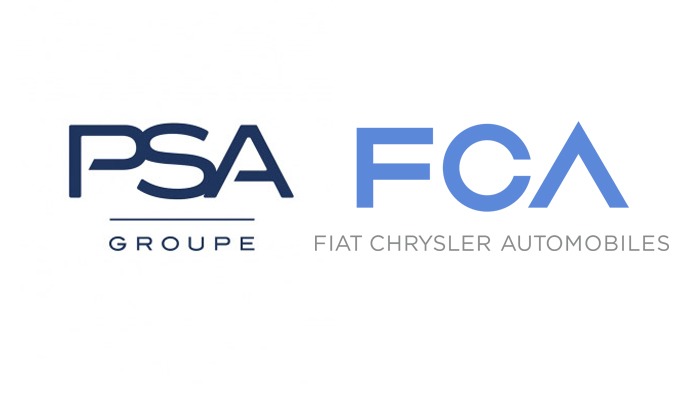PSA-FCA merger faces potential revisions
22 April 2020

22 April 2020
PSA Group is looking into revising the terms of its merger with Fiat Chrysler Automobiles (FCA).
As part of their binding agreement signed last December, both PSA and FCA agreed to pay shareholders an ordinary dividend of €1.1 billion. But with the coronavirus (COVID-19) crisis preventing the production and registration of vehicles, the companies’ share prices have almost halved in value.
Speaking on the payout plans, Philippe de Rovira, PSA’s chief financial officer, stated there had been no final decision. On a call with analysts, De Rovira said it ′remains an open question’, and that both PSA and FCA would have to agree to any change as specified in the merger deal. He added that PSA has not made any comment on the financial terms of the agreement.
PSA is also looking to avoid state aid to keep the merger on track. Any changes to planned playouts could complicate the merger. De Rovira said ′we have not taken any loan guaranteed by any state’. He hopes that this will allow the company to be as free as possible from public dependence.
CEO Carlos Tavares recently said that both sides are now moving quickly to close the merger, which is hoped to complete by next spring.
PSA’s Q1
PSA’s revenue fell by 16% to €15.2 billion in the first quarter compared with €18 billion in 2019. Automotive division revenue amounted to €11.9 billion, down 15.7% compared to the first three months of 2019. FCA’s Q1 figures will be released on 5 May.
At the release of the group’s Q1 figures, De Rovira, explained that the worst-case scenario for the company would be a 50% drop in revenue this year if no sales were made for three months and pick-up was slow. He went on to outline the cost-cutting measures the manufacturer is employing to combat the effects of COVID-19.
The carmaker reduced the number of temporary workers from 7,000 at the end of February to 700 at the end of March. Marketing spend has been slashed by 90%, with only online advertising remaining. Tax payments have dropped by 78% and research and development spending has been whittled down.
′Having secured its liquidity and drastically cut its costs, the group now fully focuses on preparing the rebound in a chaotic economic environment,’ he said.
PSA’s Q1 deliveries suffered more than some other manufacturers like BMW, who delivered over 477,000 vehicles across its brands in the first three months of 2020. This still represented a 20.6% drop for the German carmaker, compared to the first quarter of 2019. PSA’s sales also suffered more than overall European sales figures in March and Q1 given their exposure to the French market.
Partnership problems
Automotive partnerships were coming under increased strain, even before COVID-19 sunk its teeth into the industry. In December last year, Daimler and BMW pulled the Share Now mobility service out of three European locations as well as the US. This move came under a year after the two carmakers merged their car2go and DriveNow businesses in February 2019.
Renault and Nissan’s partnership suffered several trials including the arrest and subqequent escape of Nissan chairman and Renault CEO, Carlos Ghosn. With FCA also extending an offer of a friendly merger to Renault in early 2019, its relationship with Nissan came under considerable strain.
If PSA and FCA successfully pull off their merger, they will become the world’s fourth-largest automotive company based on 2019 volumes. But if the deal succumbs to the pressure of a global marketplace weighed down by COVID-19, this could be another partnership destined for the scrap heap.